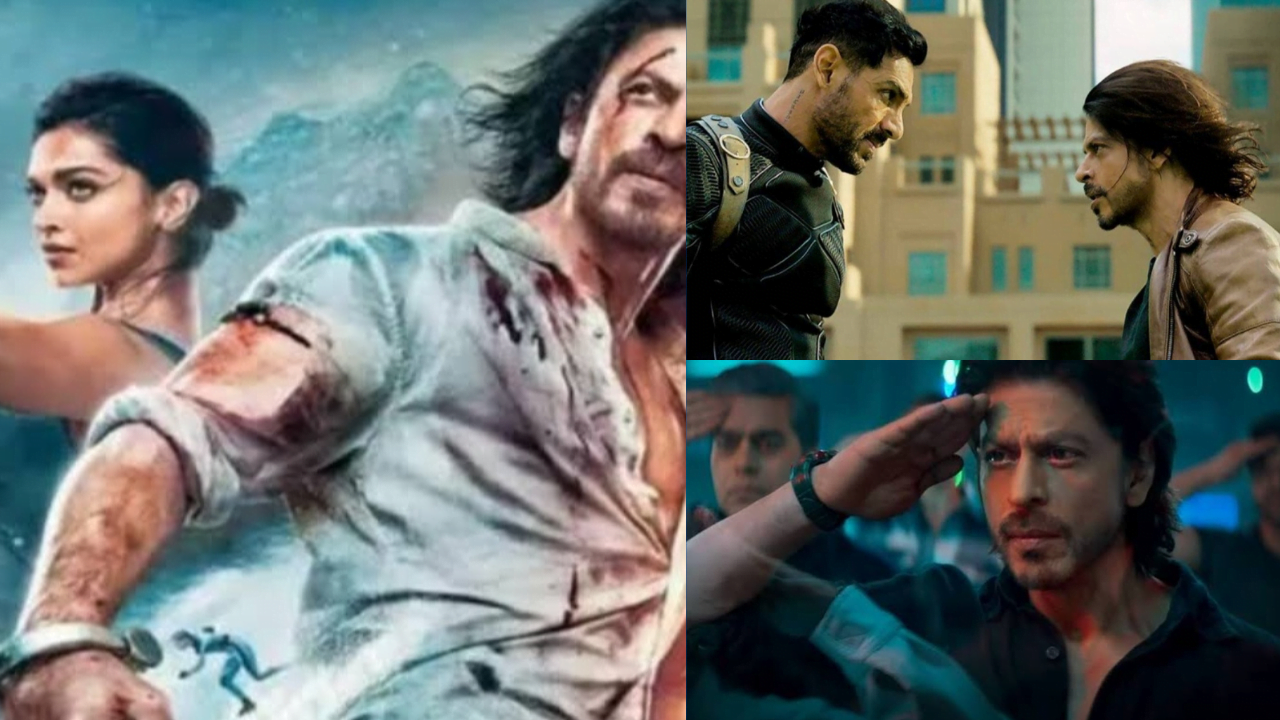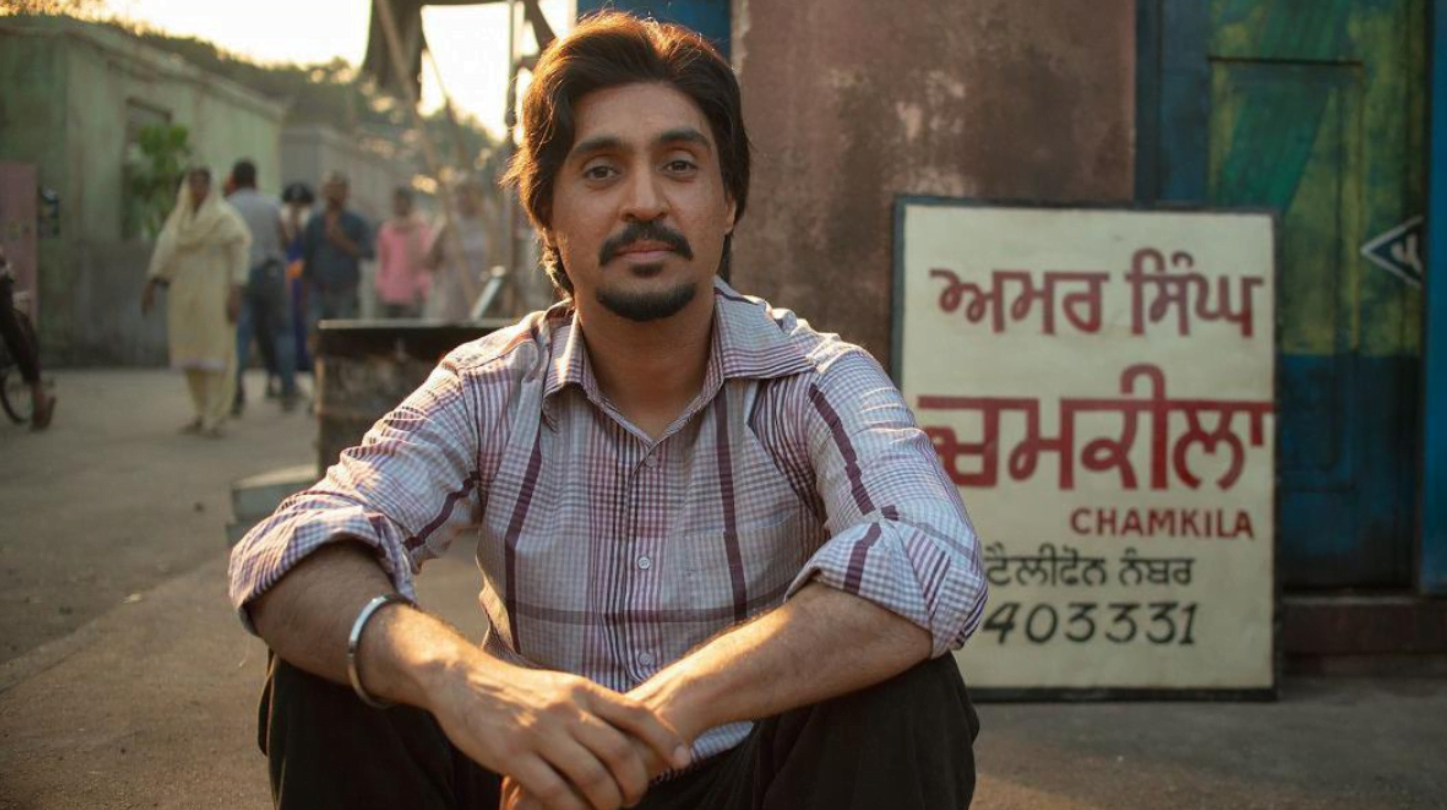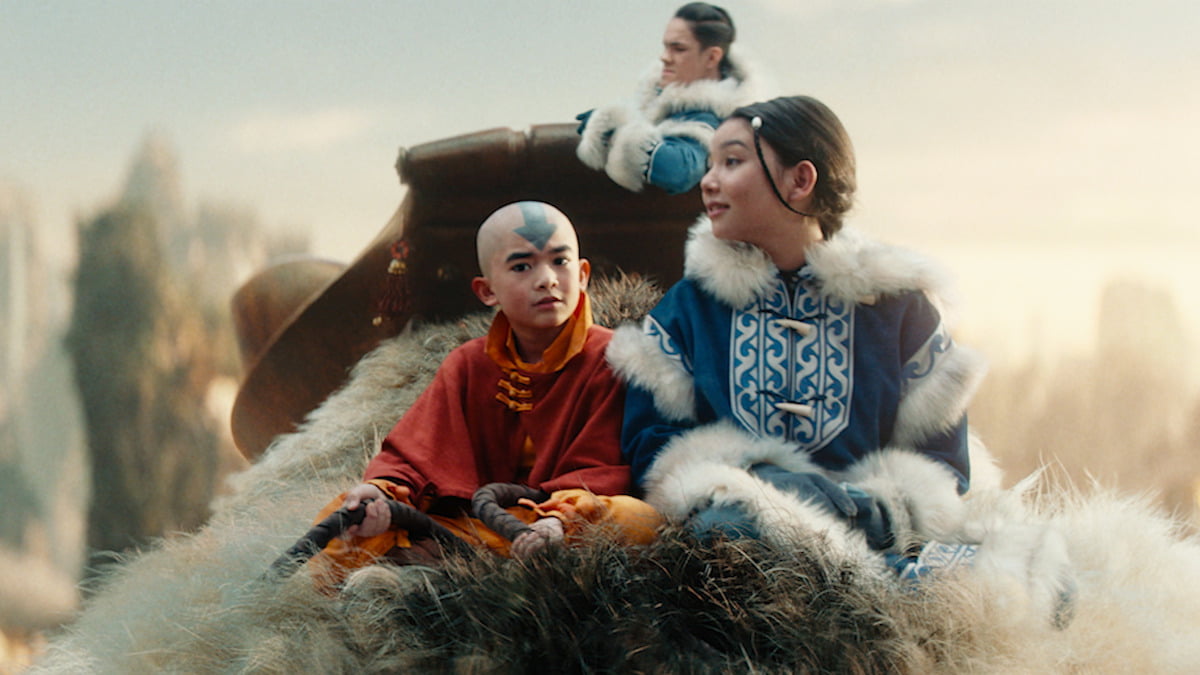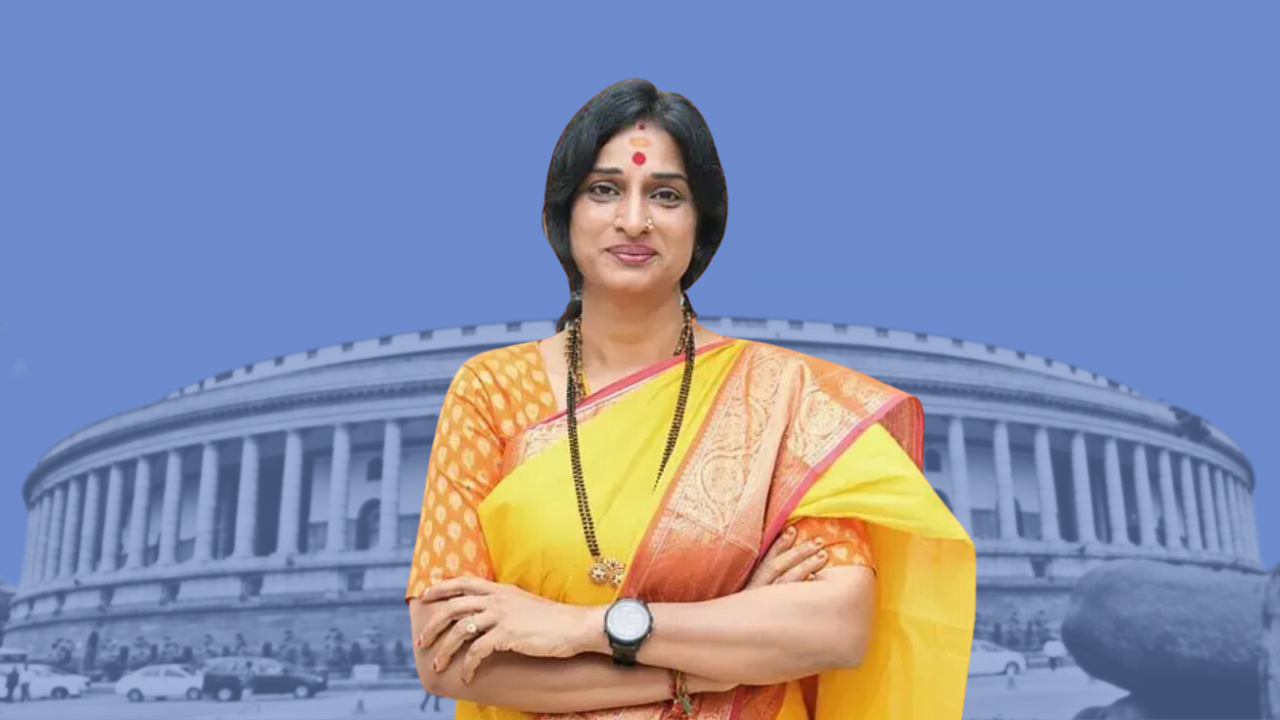“I don’t think I need to be nervous. They all are going to be superhit films. I would like to explain the lack of arrogance in this statement–that’s the belief I sleep with and wake up with. That is the belief that makes me, at the age of 57, go do stunts, jump, work 18 hours a day. Because if I did not have the belief, at the end of it all, I am doing to make a great product lots of people are going to like, I would not be able to do it.” Shortly before the release of Pathaan, Shah Rukh Khan predicted the success of the film upon its release while speaking to journalist Faye D’Souza.
Under the mask of humorous arrogance and earnest beliefs, one needs to take a deeper look into the shifting trends of Shah Rukh’s films over the last few decades to understand how Pathaan was ensured even before the idea of the film was conceived. It is the film’s difference in thematic delivery that illustrates on what grounds such unabashed faith is confounded upon and how Shah Rukh managed to get it right this time. After a hiatus from the big screen, Shah Rukh Khan returns with his 2023 release Pathaan and the nation could not have been any more starstruck in its anticipation. The film opened worldwide in what seems like a celebration of Hindi Cinema, Bollywood, and the ‘star’ that Shah Rukh Khan has created in his image through decades of phenomenal performances, candid fan interactions, and earnest fan service.

Watching Pathaan in a single-screen theatre during the opening week made me realise that the film’s theatricality is not solely contained within the screen, but rather it is a joyful culmination of the actor’s screen presence and the audience’s reaction to him. In every single frame, from the beginning to the last scene, whenever Shah Rukh appeared on screen, he was greeted with welcoming cheers, and excited shrieks and hoots by the fans. Over the fanfare and buzzing enthusiasm, it is very difficult to follow the dialogues but to truly experience the theatricality of Pathaan, one needs to closely observe the audience reactions on the flip side of the big screen.
Thus, Shah Rukh Khan’s resurrecting into a hyper-masculinist patriotic hero who repeatedly asserts his allegiance to the nationalist fervour running through the country becomes inevitable. He offers us a glimpse of the charm and vulnerability of the romantic hero throughout the film, just enough to keep his female followers hooked but never enough to stray from the formulaic action-hero masculinity that such a film demands.
Pathaan drives home a clear and distinct message that something has radically changed in Shah Rukh’s screen presence on the big screen. The vulnerable and sensitive romantic hero played by Shah Rukh at the beginning of his career is what helped him garner such a dedicated fan following in the nation. As an actor, he has proved again and again that whether it is an action hero or a romantic lover, Shah Rukh can do it all. Yet in his last few films like Dear Zindagi, Jab Harry Met Sejal, Zero, Fan, and Raees where he tries to revive such roles, it failed to perform well in the box office . It becomes evident that what appealed to the larger commercial audience only a few years ago no longer holds its charm anymore.
Also read: Bollywood’s Cultural Propaganda Against India’s Marginalised
Thus, Shah Rukh Khan’s resurrecting into a hyper-masculinist patriotic hero who repeatedly asserts his allegiance to the nationalist fervour running through the country becomes inevitable. He offers us a glimpse of the charm and vulnerability of the romantic hero throughout the film, just enough to keep his female followers hooked but never enough to stray from the formulaic action-hero masculinity that such a film demands.
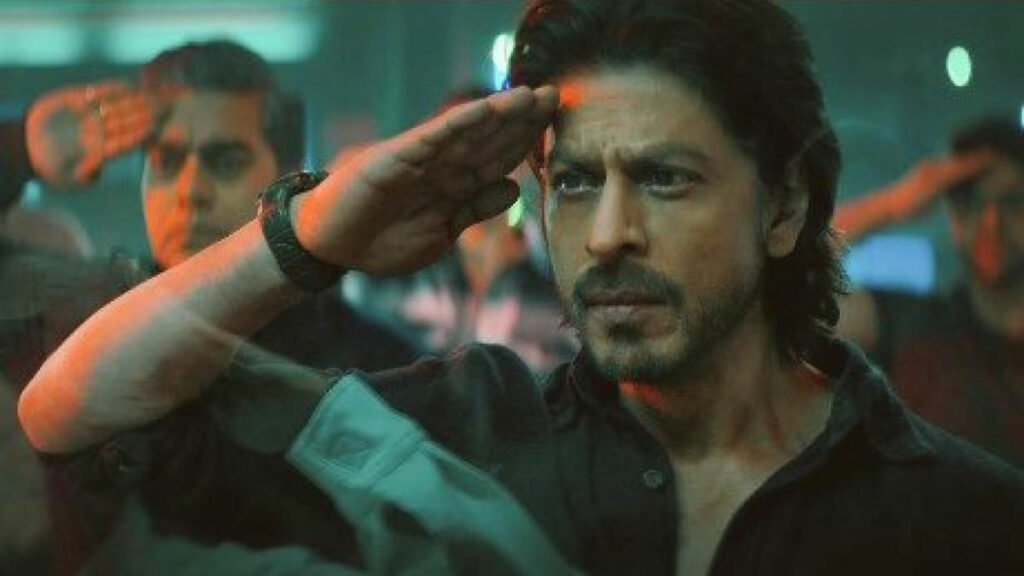
One can argue that Shah Rukh’s shift into this type of character is symptomatic of the greater socio-political climate in the country that can no longer accommodate the kind of masculinity that he portrayed in his earlier films. Pathan is an action-thriller that, like most of its predecessors, is driven by a larger-than-life, unattainable but massively desirable, selfless, and fearless soldier protagonist at its helm. The movie cements its hyper-nationalist and masculinist ideology by ripping off a certain variation of the late US President, John F. Kennedy’s historic words from his inaugural speech: “Ask not what your country can do for you – ask what you can do for your country.”
Also read: Harassment In Films: Bollywood’s Constant Normalisation Of Toxicity As Love
In the theatres, the delivery of this dialogue is met with an equally excited and emotionally charged audience whose ovation reaffirms a film like ‘Pathaan’ is what Bollywood needs to reclaim its relevance among the masses. Bollywood manufactures its hits by catering to the masses. Recent cinematic trends have proved that doling out plots that go in tandem with the hyper-nationalist politics of the right-wing ruling party of the country is what delivers the audience’s demand. Staying faithful to this tried-and-tested formula is exactly what Pathaan does to ensure its success.
Perhaps, as a nation, we have reached a point where the display of conformity to the dominant political ideology is necessary for funding creative projects. In the end, Shah Rukh, like any other actor or professional, is out there to make money, and his new film does all that is required of him to make sure that it does make money.
In Pathaan, the film’s protagonist decenters his eponymous Muslim identity to the point of erasure in the plot of the film. The Muslim identity that Shah Rukh Khan represents with his public presence or the characters he plays on screen cannot be taken as a homogenising representation of the Muslim reality in India at large. With convenient villainization of Pakistan as the ‘evil’ and ‘irrational’ enemy, and by occasionally hinting at Article 370 without ever actually engaging with the political implications of it, the film feels like a desperate attempt to appease the current dispensation to take the target off Bollywood’s and more specifically Shah Rukh’s back. It is Bollywood’s final attempt to survive as a business venture in an increasingly hostile economy. It deliberately plays into the liberal construction of the good’ Muslim and ‘bad’ Muslim binary. Such construction might favour certain individuals but in the end, only reinforces the position of the religious minorities as inferior to the dominant religion and culture.
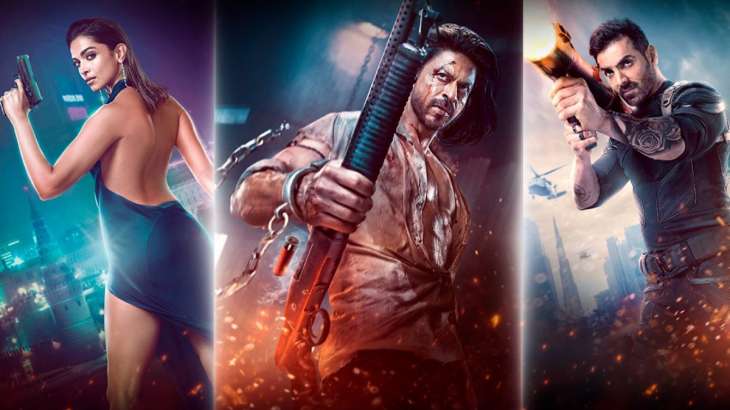
Shah Rukh Khan, in his older interviews, has proven time and again that he is acutely aware of his position as a religious minority in the country and has navigated such disparity with deft humour and ambiguous comments. But in the promotion of Pathaan, such media presence was acutely absent. Maybe that space for voicing dissent is no longer available, at least not without consequences- consequences which Bollywood or its stars can no longer risk.
Also read: Tip Tip Barsa Paani: An Example Of Bollywood’s Blatantly Ageist, Obsessive Male Gaze
Perhaps, as a nation, we have reached a point where the display of conformity to the dominant political ideology is necessary for funding creative projects. In the end, Shah Rukh, like any other actor or professional, is out there to make money, and his new film does all that is required of him to make sure that it does make money. Celebrities are created in the very reflection of the society that hype them up and give them their status. Therefore, to expect them to show political sensitivity at the expense of their professional security and ensured profits is perhaps a failure on our part to understand the mechanics of celebrity culture at large.
Celebrities are the epitome of privilege and their investment in social justice and political correctness is only limited to safeguarding their image to the public. Their brand only creates or produces what the consumers demand. While it is important to hold them accountable for the harmful influence they hold over society at large, perhaps it is more important to work towards a society that recognizes them as mere individuals subsumed within the larger socio-political power structure that fuels their power, status, and relevance within the society.
